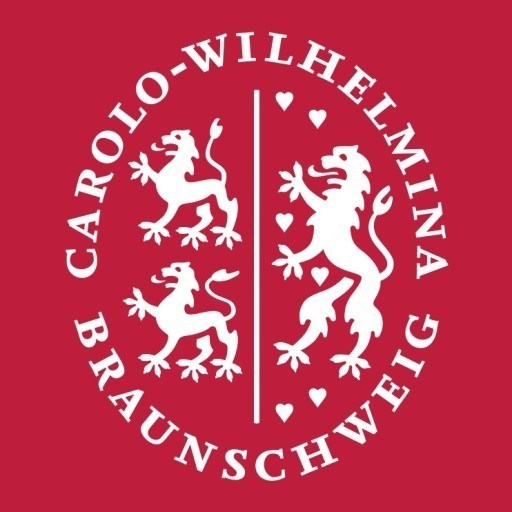Photos of university / #tu.braunschweig
In its 250 years of history, TU Braunschweig has established an outstanding reputation in international research. In university rankings, our courses in engineering and information technology are among the top 10 in Germany. We are a member of TU9, the association of the nine leading institutes of technology in Germany. TU Braunschweig has about 19,500 students and more than 2,000 scientists. Six departments and 120 institutes offer 71 degree programmes and excellent facilities for interdisciplinary research work in the fields of engineering, natural sciences, social sciences, and the humanities.
TU Braunschweig is situated at the centre of Europe's most active research and development region. The large number of major companies and leading national research institutes in the Braunschweig region create an enormous scientific potential. Students benefit greatly from the many active partnerships between university and industry: they can be involved in current research projects early on in their studies and work on study projects with practical relevance. They gain insights into various companies and can establish initial contacts with future employers in internships and practical training.
Our History
- 1745 The Collegium Carolinum is established, a new type of educational institution between secondary school and university, where mathematical/technical subjects are taught alongside humanities and fine arts.
- 1862 The institute is renamed the Polytechnic School. It is organized in eight technical and scientific departments.
- 1878 The polytechnical school is renamed Herzogliche Technische Hochschule Carolo-Wilhelmina (TH).
- 1900 The TH is accredited to award doctorates.
- 1909 Women are allowed to enrol.
- 1933 Political alignment of the TH: the institution loses nearly 20% of its academic staff during the early period of the Nazi regime.
- 1945 Despite 70% of the institution being destroyed, the TH resumes lectures. It is the first German technical university to do so.
- 1968 After the establishment of a department for humanities and social sciences, the TH is renamed Technische Universität or TU (Institute of Technology).
- 1978 The teacher training college is incorporated into the TU.
- 1995 Under the slogan »Project Future«, TU Braunschweig celebrates its 250th anniversary.
- 2003 Establishment of the Centre for Humanities and Social Sciences at the Northern campus.
- 2006 Creation of TU9, an association of the nine leading German Institutes of Technology.
- 2007 Reorganization of the TU in six departments. Braunschweig is named the »City of Science 2007«. Foundation of the Automotive Research Centre Niedersachsen (NFF).
- 2009 Foundation of the Aeronautics Research Centre Niedersachsen (NFL). Creation of the Braunschweig Integrated Centre of Systems Biology (BRICS).
- 2012 Creation of the Centre for Pharmaceutical Process Engineering (PVZ).
- 2013 Establishment of the Laboratory of Emerging Nanometrology (LENA).
- 2015 The NTH is discontinued as of January 1.
- 2016 Completion of the Open Hybrid LabFactory research campus. Inauguration of the Masch.Bau students‘ building.
- 2017 Record high of 20.116 students.
- 2018 Success in the excellence strategy: clusters of excellence in aeronautics and metrology.
- 2019 Relocation to the new Laboratory of Emerging Nanometrology (LENA).
- 2020 The TU Braunschweig celebrates its 275th anniversary.
Braunschweig is a lively student city situated in northern Germany. With a population of 250,000, it is big enough to feel cosmopolitan and yet small enough not to be overwhelming. As an important cultural and political centre dating back to the Middle Ages, Braunschweig retains the imprint of each passing age, from the medieval castle and the Gothic cathedral to modern shopping streets and leisure facilities. Braunschweig has an international reputation as a city of research. The high density of national and international companies and scientific research institutes located in and around the city make Braunschweig the most active research and development region in all of Europe.
International students will take German classes at the language centre at no cost until they have successfully completed their DSH-1 exam. The International Office provides advice and information on issues such as admission.They also evaluate applicants' degrees. This is mandatory for all non-German degrees (50 EUR for non-EU degrees, 25 EUR for EU degrees). Throughout the semester, the International Student Network and the International Gauss-Freunde organise a semester programme with a wide variety of social events and excursions for international students.
Over 120 institutes
The Technische Universität Braunschweig has 120 institutes and seminars. They are located in the following
6 Faculties
- Carl-Friedrich-Gauß-Faculty
- Faculty of Life Sciences
- Faculty of Architecture, Civil Engineering and Environmental Sciences
- Faculty of Mechanical Engineering
- Faculty of Electrical Engineering, Information Technology, Physics
- Faculty of Humanities and Educational Sciences
Central Facilities
- University Library
- Gauss-IT Centre
- Language Centre
- Sports Centre
- Central Office for Continuing Education
- Central Facility for Animal Husbandry
- Joint Central Facility Forschungszentrum Küste of the Leibniz Universität Hannover and the TU Braunschweig
- Joint Central Facility Learning Lab Lower Saxony (L3S)
University Employees
about 3.700
Traineeships
about 130
Students
about 20.000
All Continents
The TU Braunschweig currently cooperates with more than 400 partner institutes and research facilities in more than 60 countries.
